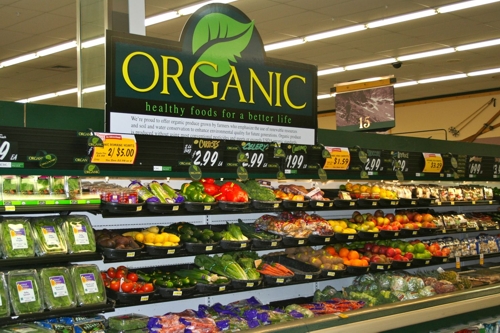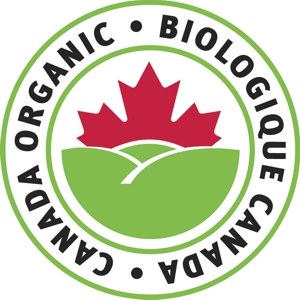Don’t get me started! – Oops! Too late. National Organic Week in Canada starts tomorrow and all the organic foods proponents, manufacturers and zealots are preparing for a week of celebration, self-conmgratulation and, generally, braying about the alleged benefits or eating organic foods.
 Organic Produce: Looks like conventional produce, tastes like conventional produce,
Organic Produce: Looks like conventional produce, tastes like conventional produce,
has the same nutritional value as regular produce. But it costs more
and it might be marginally healthier.
According top an article on the Food In Canada website:
As the largest annual celebration of organic food, farming and products across the country, there are hundreds of events and thousands of retail promotions scheduled across Canada to celebrate Organic Week.
That’s putting it mildly. Leading the pack are the Canada Organic Trade Association (COTA), Canadian Organic Growers (COG), and the Canadian Health Food Association (CHFA). “We encourage Canadians to help spread the word about how choosing organic means supporting sustainability and promoting animal welfare,” COG President Rochelle Eisen told reporter recently. “With the number of organic products on the market continuously growing, it’s easier than ever to go organic.”
And therein lies the rub…
‘Easier’? Yes. I suppose so. But going organic also means committing to paying higher prices for your food – as much as twice the price of non-organic foods in some cases. Is that a good thing to promote in these times of soaring food prices and decaying nutritional standards among the struggling middle class, working poor and truly impoverished? It makes ‘going organic’ seem like some sort of new pastime for those privileged folks who can afford it.
Well… I always thought food was a great leveller. Whether you’re a king or a pauper, you both get exactly the same benefit from eating a Carrot. Or a steak. Or a slice of Bread. Sure, the well-to-do have always had greater access to the more-expensive foods but that never impacted the the inherent democratic nature of basic nutrition. Now, the organics people would have us believe that their products are just naturally better than the ones most of us can afford. This idea makes me very uncomfortable. Whenever one group or sect actively promotes itself as superior to another, we head down the same slippery slope that led to the French Revolution and the murderous rivalry depicted in Lord of the Flies and the class distinctions of Animal Farm. Am I exaggerating? Maybe. But ‘organic vs. inorganic’ could easily evolve into ‘clean vs, unclean’. And, from there, it could just as easily be simplified to ‘good vs. bad’. It’s happened over and over again, throughout history.
On the up side…
Fortunately, the organic movement doesn’t have – or, currently, even seek – any particular kind of political or economic power. I’m just saying the potential is there. And what a shame if society was to divide itself over something as basic and universal as food.
The other aspect of the organic movement that keeps it democratic is that ‘food is food’. A Carrot is a Carrot, whether it’s organic or not. There’s no significant difference in nutritional value between any organic food and it’s conventional counterpart. It’s all about the idea of ‘eating clean’, and that remains a choice, rather than a requirement.
And… Both organic and non-organic foods still show up on store shelves side by side. The only palpable difference being their respective prices.
So…
For now, at least, I give the organic movement the same assessment in my blog that Ford Prefect gave Earth in the Hitchhiker’s Guide to the Galaxy: Mostly Harmless.
~ Maggie J.

